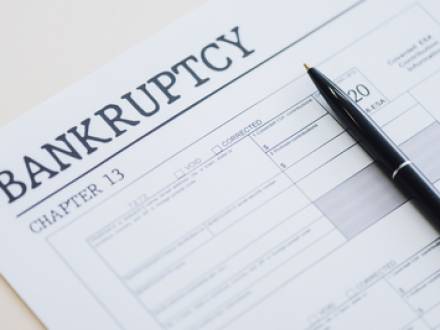Recent Blog Posts
Will Bankruptcy Ruin My Credit Score?
 According to Experian, a bankruptcy record can reduce a person’s credit score by up to 200 points, making a serious mark on a credit report. So, bankruptcy will lower your credit score, but it will not ruin your credit forever. Many people begin rebuilding their credit sooner than they expect after their debts are cleared.
According to Experian, a bankruptcy record can reduce a person’s credit score by up to 200 points, making a serious mark on a credit report. So, bankruptcy will lower your credit score, but it will not ruin your credit forever. Many people begin rebuilding their credit sooner than they expect after their debts are cleared.
If you are dealing with serious debt in 2026, bankruptcy may help you reset financially. Our Parker County, TX bankruptcy lawyers can help you understand how filing affects your credit and your future.
How Much Does Bankruptcy Lower Your Credit Score?
Bankruptcy can cause a drop in your credit score, especially if your score was high before filing. However, many people already have low credit scores because of missed payments, collections, or maxed-out credit cards.
How Much Debt Is "Enough" to Consider Bankruptcy? | TX Lawyer
 Financial stress can build slowly, then suddenly feel overwhelming. It can be challenging to tell whether you have reached the point where bankruptcy makes sense. The truth is that there is no exact dollar amount that automatically means you should file. Instead, the decision usually depends on your ability to realistically repay what you owe.
Financial stress can build slowly, then suddenly feel overwhelming. It can be challenging to tell whether you have reached the point where bankruptcy makes sense. The truth is that there is no exact dollar amount that automatically means you should file. Instead, the decision usually depends on your ability to realistically repay what you owe.
As of 2026, more individuals are exploring bankruptcy as a way to regain financial stability rather than continue struggling with unmanageable debt. If you are in this situation, a Fort Worth, TX bankruptcy lawyer can help you evaluate whether filing may be the right step.
Is There a Minimum Amount of Debt Required To File For Bankruptcy in Texas?
There is no legal minimum debt required to file for bankruptcy. What matters most is whether you can reasonably afford your monthly payments while still covering basic living expenses.
Can You Go Through a Divorce and Bankruptcy at the Same Time?
 In 2025, total filings for personal and business bankruptcy in the United States reached over 550,000, showing that many households continue to face serious financial pressure. For some people, that financial stress happens at the same time as a marriage breakdown. This often leads to questions about divorcing and filing for bankruptcy. In many situations, people are able to do both, but timing and planning are critical.
In 2025, total filings for personal and business bankruptcy in the United States reached over 550,000, showing that many households continue to face serious financial pressure. For some people, that financial stress happens at the same time as a marriage breakdown. This often leads to questions about divorcing and filing for bankruptcy. In many situations, people are able to do both, but timing and planning are critical.
As of 2026, courts still treat divorce and bankruptcy as separate legal processes with different goals. If you are facing both issues, an Arlington, TX bankruptcy lawyer can help you understand how they interact and what steps make sense for your situation.
Can You File for Divorce and Bankruptcy at the Same Time?
You can file for divorce and bankruptcy at the same time, but doing so without a plan can create complications. Divorce cases are handled in Texas family court, while bankruptcy cases are handled in federal court. Each court follows its own rules and timelines.
Will a 2026 Bankruptcy Filing Change Your April Tax Bill?
 January is one of the most common months for bankruptcy filings in Texas and across the nation. If you are like many Texans, you may be considering filing for bankruptcy at the beginning of 2026. Perhaps the financial strain of the holidays was too much, or the entire year was difficult financially.
January is one of the most common months for bankruptcy filings in Texas and across the nation. If you are like many Texans, you may be considering filing for bankruptcy at the beginning of 2026. Perhaps the financial strain of the holidays was too much, or the entire year was difficult financially.
New year, fresh financial start, right? But when you file bankruptcy in early 2026, you must consider how it will affect your taxes when April rolls around. Tax season is stressful enough, but when you combine taxes and bankruptcy, the results may not be what you expected. Your ultimate decision will depend on several factors, including the type of bankruptcy you plan to file, whether you owe back taxes, and whether you expect a refund.
The bottom line is that timing matters more than most people realize, and it is important that you fully understand all the tax implications of filing bankruptcy early in the year. To avoid unexpected complications, consulting with an experienced Fort Worth, TX bankruptcy attorney is the best step you can take.
Texas Chapter 13 Modifications Caused by Rising Costs
 For many Chapter 13 bankruptcy filers, the repayment plan they agreed to may have worked at the time they filed. However, with the cost of living climbing sharply in Texas and across the nation, the agreed-on monthly payments may no longer be feasible. In fact, with Chapter 13 plans lasting from three to five years, there is plenty of time for economic conditions to significantly shift. Texas debtors may be able to get some relief through a modification to their Chapter 13 plan when unexpected financial pressures make the original plan unworkable.
For many Chapter 13 bankruptcy filers, the repayment plan they agreed to may have worked at the time they filed. However, with the cost of living climbing sharply in Texas and across the nation, the agreed-on monthly payments may no longer be feasible. In fact, with Chapter 13 plans lasting from three to five years, there is plenty of time for economic conditions to significantly shift. Texas debtors may be able to get some relief through a modification to their Chapter 13 plan when unexpected financial pressures make the original plan unworkable.
Trustees and judges now routinely see cases where increased rent, insurance premiums, utilities, and groceries make the original payment plan unrealistic. The good news is that these types of inflation-driven changes are among the strongest grounds for a court-approved modification. If you are having difficulty meeting your monthly Chapter 13 payments, a Wise County, TX Chapter 13 bankruptcy attorney can help explore your options for a potential modification.
Handling Criminal Fines in Texas Through Chapter 13 Plans
 Most people think that bankruptcy only deals with credit card debt, medical debt, and other unsecured debt. What fewer people know is that filing for Chapter 13 bankruptcy in Texas can sometimes help restore a suspended driver’s license when the suspension is related to unpaid criminal fines, surcharges, restitution, or court-ordered fees. While the state of Texas has eliminated the old Driver Responsibility Program, many Texas municipalities, JP courts, and county criminal courts still suspend drivers’ licenses for unpaid obligations.
Most people think that bankruptcy only deals with credit card debt, medical debt, and other unsecured debt. What fewer people know is that filing for Chapter 13 bankruptcy in Texas can sometimes help restore a suspended driver’s license when the suspension is related to unpaid criminal fines, surcharges, restitution, or court-ordered fees. While the state of Texas has eliminated the old Driver Responsibility Program, many Texas municipalities, JP courts, and county criminal courts still suspend drivers’ licenses for unpaid obligations.
A Chapter 13 repayment plan can create a structured, court-ordered path to resolve those debts, often restoring driving privileges far sooner than attempting to pay everything up front. If you want to know whether your criminal fines and resulting driver’s license suspension in Texas can be handled through Chapter 13, it is time to speak to a highly skilled Parker County, TX Chapter 13 bankruptcy lawyer.
FEMA and SBA Loan Recapture in Texas Bankruptcy Cases
 Following a Texas natural disaster, such as a hurricane, flood, or wildfire, financial help from the Small Business Administration (SBA) and FEMA can be a true lifeline. Unfortunately, for some, this relief can later turn into yet another hardship. Texans are receiving recapture letters, demanding repayment of disaster grants or loans months or even years after rebuilding is complete.
Following a Texas natural disaster, such as a hurricane, flood, or wildfire, financial help from the Small Business Administration (SBA) and FEMA can be a true lifeline. Unfortunately, for some, this relief can later turn into yet another hardship. Texans are receiving recapture letters, demanding repayment of disaster grants or loans months or even years after rebuilding is complete.
Should those debts become unmanageable, bankruptcy relief may end up being the only option. It is important to have a full understanding of how FEMA and SBA debts are treated in Texas bankruptcy courts, what determines whether those debts are dischargeable, and how you can prepare before filing for bankruptcy. A highly skilled Wise County, TX bankruptcy lawyer can help you navigate these debts during bankruptcy.
When SBA Disaster Assistance Could Require Repayment
SBA loans, including EIDL and 7(a) loans, do not have special priority under the U.S. Bankruptcy Code and are treated like other government debt. The personal liability for an SBA loan can be discharged in a personal bankruptcy, either Chapter 7 or Chapter 13. If the SBA placed a lien on a specific business or personal asset, the lien will usually survive the bankruptcy discharge.
Are Debts to Family and Friends Wiped Out in Texas Bankruptcy?
 Many of us turn to friends or family members when money is tight. Perhaps we need a loan to cover rent, medical bills, or unexpected business expenses. But what happens if you later file for bankruptcy in the state of Texas? Are these personal loans discharged like credit card or medical debt, or do different rules apply?
Many of us turn to friends or family members when money is tight. Perhaps we need a loan to cover rent, medical bills, or unexpected business expenses. But what happens if you later file for bankruptcy in the state of Texas? Are these personal loans discharged like credit card or medical debt, or do different rules apply?
Under both Chapter 7 and Chapter 13 bankruptcy, debts to an individual (including relatives) are treated the same as any other unsecured debt. However, as you might imagine, emotional, ethical, and legal complications can arise when loans from family members are involved.
It is essential to understand how Texas bankruptcy courts classify, disclose, and treat loans from family and friends to prevent serious misunderstandings – and even fraud allegations. An experienced Parker County, TX consumer bankruptcy lawyer can guide you through sticky issues like this, helping you to get a fresh financial start.
The Little-Known "Super Discharge" in Texas Chapter 13 Cases
 Many people consider Chapter 7 bankruptcy as the easiest, fastest way to eliminate debt. Fewer people are aware that Chapter 13 bankruptcy can sometimes wipe out a wider range of debt under an expanded discharge, known as the "Super Discharge." Under certain conditions, Chapter 13 bankruptcy can eliminate many of the obligations that survive Chapter 7, including some divorce-related payments, older tax debts, and even penalties tied to willful property damage.
Many people consider Chapter 7 bankruptcy as the easiest, fastest way to eliminate debt. Fewer people are aware that Chapter 13 bankruptcy can sometimes wipe out a wider range of debt under an expanded discharge, known as the "Super Discharge." Under certain conditions, Chapter 13 bankruptcy can eliminate many of the obligations that survive Chapter 7, including some divorce-related payments, older tax debts, and even penalties tied to willful property damage.
Small business owners, families, and individuals caught between unmanageable debt and repayment demands should consider this often-overlooked feature of Chapter 13, which can, in many cases, serve as a financial lifeline. To determine whether you are eligible for a Chapter 13 super discharge, speak to an experienced Fort Worth, TX Chapter 13 bankruptcy lawyer.
What Is Chapter 13 "Super Discharge?"
A Chapter 13 super discharge refers to a set of debts that can be discharged or erased in a Chapter 13 bankruptcy case, as compared to a Chapter 7 bankruptcy case. The three-to-five-year repayment plan required in Chapter 13 must be completed to qualify for the elimination of this wider array of debts. Some debts, such as federal tax debt and debts resulting from malicious injury or fraud, are non-dischargeable under Chapter 7, but may be dischargeable under a Chapter 13 super discharge.
When Credit Card Debt May Not Be Dischargeable in Chapter 7
 If you have decided to file for Chapter 7 bankruptcy, you may expect a clean slate when all is said and done, especially when it comes to credit card debt. Although it is true that most unsecured debts will be wiped out by Chapter 7 bankruptcy, there are certain unique situations in which credit card debt can survive bankruptcy. Courts typically scrutinize recent spending, cash advances, and fraud-related purchases during a Chapter 7 bankruptcy filing.
If you have decided to file for Chapter 7 bankruptcy, you may expect a clean slate when all is said and done, especially when it comes to credit card debt. Although it is true that most unsecured debts will be wiped out by Chapter 7 bankruptcy, there are certain unique situations in which credit card debt can survive bankruptcy. Courts typically scrutinize recent spending, cash advances, and fraud-related purchases during a Chapter 7 bankruptcy filing.
It is important to know what types of credit card debt might not be removed under Chapter 7, so there are no unpleasant surprises on your way to a fresh financial start. Having an experienced and knowledgeable Dallas, TX Chapter 7 bankruptcy attorney by your side throughout the process can help ensure that your bankruptcy will wipe out all your unsecured debt.









